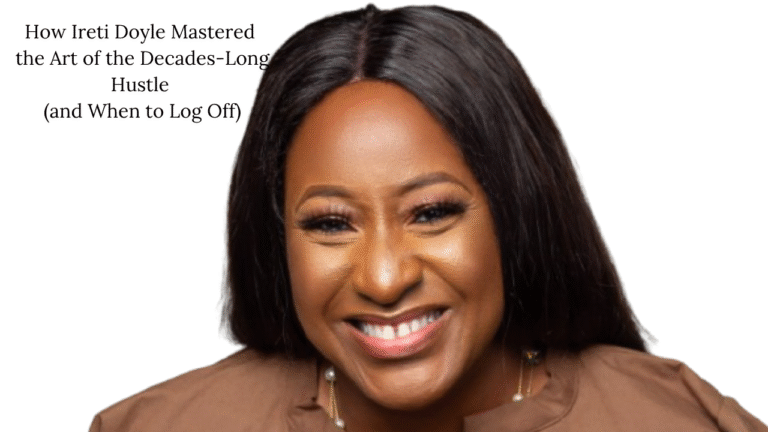
Why Questions Matter
Have you ever asked your partner something that changed everything? It’s a light-hearted inquiry, yet it encapsulates the profound impact that questions can have on a relationship. In the complex web of romance, communication stands out as a fundamental pillar that supports the bond between partners. Questions serve as the essential tools that not only facilitate communication but also foster a deeper understanding of one another’s thoughts, desires, and dreams.
Consider a couple who once spent an entire evening debating the merits of pineapple on pizza. Initially, this seemingly trivial discussion led to unexpected revelations: she shared a nostalgic memory of her family’s Friday night pizza tradition, while he expressed his adventurous taste for flavors. This innocent questioning opened doors to their pasts, showcasing how even light banter can unveil profound insights into one another. Such moments reinforce the idea that asking questions can reflect the core of a relationship, illuminating personal histories and preferences that might otherwise remain obscured.
In the realm of intimate partnerships, employing a set of 21 questions for couples can lead to enlightening discussions that strengthen the relationship. These inquiries encourage openness, making it easier for partners to explore topics they might have been hesitant to approach otherwise. Engaging in thoughtful dialogues about shared values, life goals, or even light-hearted subjects can allow couples to connect on multiple levels. The significance of these questions lies not just in what is said, but also in what remains unsaid, as they create an atmosphere of trust and willingness to share.
Ultimately, the art of questioning enriches relationships by building emotional intimacy and understanding. As couples navigate their journey together, posing these essential inquiries can help unearth the layers of one another’s hearts, making for a more fulfilling partnership.
How to Use the 21 Questions
The 21 questions for couples serve as an engaging tool designed to facilitate deeper connection and understanding between partners. Effectively utilizing these questions can enrich moments shared together, whether during a cozy evening at home, on a romantic date night, or even while embarking on a long road trip. The context in which couples choose to delve into these inquiries can greatly enhance the experience. For instance, a relaxed atmosphere can inspire openness, leading to more meaningful exchanges.
When planning to use the 21 questions, it is essential to create an environment conducive to honest dialogue. Choose a setting that encourages both partners to feel comfortable expressing their thoughts and emotions. This can be achieved through soft lighting, minimal distractions, and ensuring that both partners have the time and mental space to engage fully in the conversation. Establishing a dedicated moment for this interaction conveys the importance of the exercise and reinforces the commitment to each other.
Another consideration is timing. Selecting a moment when both individuals are relaxed and free from external pressures can greatly influence the depth of the conversation. Avoid times when one partner may be preoccupied or stressed, as such distractions can hinder authenticity and engagement with the questions. It’s essential to allow the discussions to unfold organically, as both partners share their perspectives. Laughter and light-heartedness can frequently bring relief to even the most serious inquiries, fostering an environment where every question can be approached with ease.
Ultimately, the goal is not just to answer the questions but to enjoy the process of discovery together. By embracing the 21 questions for couples with an open heart and mind, partners can foster a profound connection that can withstand the tests of time.
1-7: The Fun and Lighthearted Questions
Communication is a cornerstone of any relationship, and incorporating playful inquiries can significantly enhance the dynamics between couples. The first seven questions from the “21 questions for couples” set provide an opportunity to explore fun and lighthearted aspects of each other’s lives. These can include topics such as:
- What is your favorite childhood memory?
- If you could travel anywhere in the world, where would you go and why?
- What is your dream vacation destination?
- What is your ideal pizza topping combination?
- If you could have any superpower, what would it be?
- Which movie or book character do you most relate to?
- If you could relive any day of your life, which would it be and why?
These questions are designed not only to evoke laughter but also to foster a sense of intimacy. By sharing amusing stories and desires, couples create an atmosphere of lightness that encourages openness and bonding. Such playful dialogues can act as a bridge, leading to deeper conversations while making both partners feel more at ease. This playful interaction lays the groundwork for discussing more serious or profound topics later, as it cultivates a shared space of trust and joy.
As couples engage with these fun questions, they learn about each other’s quirks, dreams, and experiences. This fundamental understanding ultimately strengthens their connection, creating a lasting impact on their relationship. The lighthearted discourse serves to remind partners that, amidst the serious aspects of life, there is always room for joy and shared laughter, bolstering their bond further.
8-14: The Reflective and Emotional Questions
In the journey of building a stronger connection between partners, reflective and emotional questions can play a pivotal role. Questions 8 through 14 of the 21 questions for couples are designed to elicit deep introspection and foster emotional vulnerability. These inquiries often touch upon vital aspects of life, including personal fears, aspirations for the future, and core values that define an individual. By engaging in these discussions, couples can gain insight into each other’s backgrounds, beliefs, and emotional landscapes, paving the way toward a deeper understanding of one another.
For instance, asking about a partner’s greatest fear not only opens the door to conversation but also signals trust and a safe space for sharing. Similarly, inquiring about hopes for the future can reveal shared dreams and potential differences in aspirations. Engaging in such dialogues often yields ‘aha’ moments where partners discover unexpected commonalities or learn about the sources of each other’s experiences. As one couple noted, “We were surprised at how much we felt in sync when discussing our pasts; it was as if we were piecing together a puzzle that gave us clarity on our relationship.”
Furthermore, discussing important life values helps to identify the non-negotiables that each partner holds dear. This level of transparency can cultivate a stronger foundation upon which partners can build their future, united in their beliefs and goals. During these reflections, it is not uncommon for humor to surface, lightening the atmosphere. One partner might jokingly say, “Well, if you’re afraid of spiders, we’ll just have to ensure we are always in a well-lit, spider-free zone.” Such lighthearted interactions can deepen bonds, allowing couples to process serious topics while still enjoying their time together.
In essence, the reflective and emotional questions from the 21 questions for couples serve as powerful tools to nurture intimacy and understanding, reinforcing the emotional connection that is vital for enduring relationships.
15-21: The Introspective and Challenging Questions

The final set of the 21 questions for couples delves into introspection, challenging partners to reflect on their love and relationships. These questions aim to uncover past experiences, dreams, and aspirations that shape the unique bond a couple shares. By exploring these deeper layers, partners can facilitate significant growth, enhance intimacy, and address potential conflicts.
One such question might be, “What event from your past has most significantly shaped your views on love?” This inquiry encourages individuals to reflect on key experiences that may have influenced their romantic ideals. Understanding each other’s backgrounds can deepen empathy and allow partners to navigate each other’s emotional landscapes more effectively.
Another relevant question is, “What are your individual dreams that you haven’t shared or pursued yet?” This invites couples to discuss aspirations that might not have been fully voiced, allowing them to support one another in achieving their goals. Sharing personal ambitions can enhance the bond while also fostering motivation and understanding within the relationship.
Additionally, asking, “How do you envision our future together in the next five years?” allows partners to align their hopes and expectations. Discussing future aspirations can be pivotal in uncovering any discrepancies in each partner’s vision for the relationship. This aspect of communication can serve as a foundation for growth and mutual goal-setting.
Furthermore, a thought-provoking question could be, “What are your fears in our relationship?” Addressing this concern opens the floor for vulnerability, granting each partner an opportunity to express their concerns constructively. This not only builds trust but also allows for collaborative conflict resolution, turning potential tension into deeper understanding.
Lastly, couples may benefit from asking, “What does unconditional love mean to you?” This question encourages introspection about personal definitions and expectations of love. By exploring this topic, couples can uncover the profound significance each partner places on love, ultimately paving the way for stronger connections.
Adding Humor to Deep Conversations
Engaging in deep conversations about relationships can often feel heavy, but introducing humor can serve as an effective facilitator. Humor lightens the atmosphere, encouraging openness and allowing partners to address sensitive subjects more freely. When couples tackle the 21 questions for couples with a playful approach, they discover a profound depth in their exchanges, often resulting in lighter moments that strengthen their bond.
Consider the humorous perspective shared by comedian Ellen DeGeneres, who once noted, “The key to a successful relationship is not only love but also a great sense of humor.” Many couples underestimate the power of laughter during serious discussions, yet it is precisely that light-heartedness which creates a safe space for vulnerability. Whether it’s playful banter or silly anecdotes, adding a humorous twist can transform intimidating topics into enjoyable conversations.
For instance, a couple navigating financial discussions often resorts to humor as their safety net. One partner might quip about a past disastrous budgeting plan, prompting laughter and easing the tension. This approach not only fosters connection but also helps partners feel more relaxed when addressing potentially contentious subjects.
Here are some tips for incorporating humor into serious discussions: First, recall shared funny experiences related to the topic at hand. These shared memories can spark laughter and set a more relaxed tone. Secondly, consider using light-hearted language; playful metaphors or unexpected comparisons can diffuse tension effectively. Finally, approach the conversation with an open-minded attitude; being willing to laugh at oneself can invite the other partner into a space of mutual understanding and empathy.
In navigating the deeper questions of a relationship, balance is key. By intertwining humor with sincerity, couples can explore the 21 questions for couples with both insight and playfulness, ultimately reinforcing their connection while addressing significant issues.
Creating a Safe Space for Open Dialogue
In relationships, open and honest communication is crucial for understanding and intimacy. Establishing a safe environment where both partners feel comfortable sharing their thoughts and feelings fosters meaningful conversations, particularly when engaging with the “21 questions for couples.” One effective method to achieve this is through active listening, which involves fully concentrating on what the other person is saying. By offering undivided attention, partners can not only hear the words but also comprehend the emotions behind them. This practice encourages transparency and reinforces the belief that each partner’s voice is valued.
Another significant aspect of creating a safe space is demonstrating empathy. When partners actively recognize and validate each other’s feelings, they cultivate a deeper connection. Empathy involves putting oneself in the other person’s shoes, which can be incredibly beneficial during discussions prompted by the “21 questions for couples.” By expressing understanding and compassion, partners can diffuse potential tension and create a calming atmosphere for dialogue.
Avoiding judgment is equally vital in maintaining an open and respectful dialogue. Couples should strive to respond thoughtfully rather than reactively, ensuring that their discussions remain constructive. Positive reinforcement can help, where each partner recognizes and appreciates the efforts made by the other when discussing sensitive topics. For example, using encouraging body language, such as nodding or maintaining eye contact, can signal attentiveness and support. Ensuring that both partners feel heard and validated reduces the fear of vulnerability, making it easier to dive into deeper conversations.
Through these practices, couples can build a foundation of trust, significantly enhancing their ability to navigate the “21 questions for couples” with openness and sincerity. This approach ultimately leads to stronger, more resilient relationships.
Real-Life Scenarios: Couples Share Their Experiences

Engaging in the “21 questions for couples” can create memorable experiences and deepen the bond between partners. Many couples have reported significant changes in their relationships after utilizing this fun and insightful exercise. One couple, Sarah and Tom, shared their journey: “We used the questions as a fun date night activity. What started as laughter over silly answers turned into a deep discussion about our future. It helped us align our goals and desires.” This highlights how the questioning process can lead to important reflections on relationship dynamics.
Another couple, Lisa and James, recounted a humorous moment during their questioning session. “We were asked about our most embarrassing moments. I told a story about falling at a wedding, and James suddenly confessed he once wore mismatched socks on a first date! It was hilarious and lightened the mood, reminding us to embrace our imperfections.” This illustrates how the “21 questions for couples” can infuse joy and laughter, which are essential components of a healthy relationship.
Moreover, couples like Emily and Mark found clarity through their discussions. “After going through certain questions, we realized we had never really communicated about our views on parenting. It was eye-opening and helped us navigate a huge topic with understanding,” Emily said. Such moments of clarity reinforce the benefits of addressing deeper issues, which may not have been approached otherwise.
The current discourse on the importance of communication in relationships is echoed by these real-life accounts. Couples who take the time to ask thoughtful questions often find transformation, whether through humorous revelations or poignant discussions. They underline how the “21 questions for couples” can act as effective tools in nurturing connection and understanding and can lead to enriched relational experiences.
Conclusion: Reap the Benefits of Thoughtful Questions
Engaging in the 21 questions for couples presents an invaluable opportunity for partners to enhance their connection and intimacy. These questions serve as a structured yet flexible framework through which couples can explore their individual thoughts, feelings, and aspirations. By addressing various aspects of their relationship through these profound inquiries, partners can foster a deeper understanding of one another. This mindfully engaging exercise can lead to improved communication—a cornerstone of any healthy relationship.
Moreover, these thought-provoking questions have the potential to elevate the level of mindfulness within the relationship. By taking the time to consciously reflect on their responses and actively listen to their partner’s perspective, couples empower themselves to build a more resilient bond. This act of intentional engagement nurtures empathy and trust, transforming the way partners interact in their daily lives.
When couples delve into these 21 questions, they not only learn about each other’s past experiences and future hopes but also reinforce their commitment to one another. This alignment and understanding create a robust foundation for handling challenges together, fostering a sense of unity even in tumultuous times. Applying these queries in conversations can shed light on important areas of life that may have previously been overlooked, providing partners with insights that can enrich their journey together.
In conclusion, the benefits of engaging in these 21 questions for couples extend far beyond mere conversation; they offer a pathway to significant growth and connection. We encourage readers to take the plunge and incorporate these questions into their interactions. Hidden treasures of understanding and intimacy await within every question. Additionally, consider exploring resources that provide further relationship-building exercises to continue strengthening your bond.
FAQs: Common Questions About Couples and Communication
Effective communication is a cornerstone of any romantic relationship, and many couples often have questions about how to improve their interactions. One common inquiry revolves around the efficacy of using questions as a connection tool. Asking your partner engaging and thought-provoking questions can promote openness and facilitate deeper understanding. The concept of “21 questions for couples” serves as an excellent framework, offering a variety of queries that can jumpstart meaningful conversations.
Another frequently addressed topic is how to handle difficult conversations. Couples may wonder what the best approach is when addressing sensitive issues. It is advisable to create a safe and calm environment before diving into potentially contentious subjects. Approaching these topics with empathy and patience is crucial. One effective strategy is to use “I” statements to express feelings rather than placing blame, which can help prevent defensiveness. Additionally, practicing honesty and vulnerability can foster a more constructive dialogue.
Active listening also plays an essential role in enhancing communication. Many couples ask how they can become better listeners. One key technique is to give full attention to the speaker while minimizing distractions. It is beneficial to maintain eye contact and provide affirming gestures or words that signal engagement. Reflecting back what the partner has said can also clarify understanding and demonstrate that their thoughts are valued. Moreover, incorporating questions into active listening can invite your partner to elaborate further, creating a richer conversation.
Engaging in conversations through questions can enable couples to explore each other’s emotions and perspectives. Incorporating the concept of “21 questions for couples” can make this process more enjoyable and effective. The journey of improving communication is ongoing, but by embracing these strategies, couples can strengthen their bond and navigate their relationship more resiliently.











1 thought on “21 Questions for Couples: Strengthening Your Bond Through Fun and Insight”